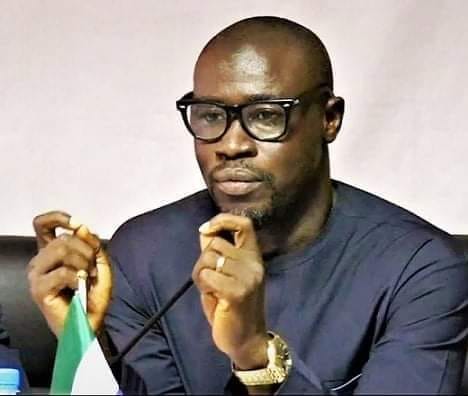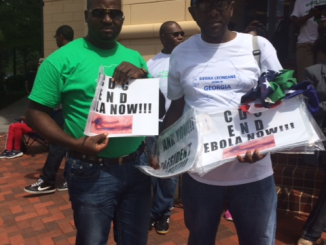
HON. IBRAHIM TAWA CONTEH’S STATEMENT ON THE REPORT ON INVESTIGATION INTO ALLEGATION OF MISAPPROPRIATION OF PUBLIC FUNDS BY SOME MEMBERS OF PARLIAMENT—
I received a signed copy of the subject matter report of the Anti-Corruption Commission (ACC) which was triggered by some media interviews I gave on 21st & 22nd October 2019.
I should state that this report comes about sixteen months after my statement to the ACC and the signed copy of the report copied me is different in content from what was published.I note that on the issue of Constituency Development fund (CDF), the ACC reported that “_MPs did not utilize the money for the strictly prescribed purpose….but they rather used the money for other developmental activities…as they deemed necessary_”. Under which financial law or regulation, did those MPs unilaterally decide to divert funds budgeted for a specific purpose to some other purpose, the ACC did not say.
As a law-abiding lawmaker, I presented receipts of use of my CDF funds for the intended purpose, but the ACC did not make any mention of that in their report.I also note that on the issue of General Imprest and Parliamentary Oversight, the ACC reported, confirming my statement, that Parliament received about 95% of its 2018 budgetary allocation.

However, ACC concluded that imprest for 2018 and 2019 “_were expended and appropriate returns made_” and that there was no specific disbursement of funds for parliamentary oversight even though it was a budgeted activity by parliament and 95% of the total budget sum was received. In the Anti-Corruption Act 2008 (ACA 2008) deprivation of funds to a public body amounts to misappropriation of public funds (section 36(2) of the ACA 2008). But yet, the ACC did not find this prosecutable! I also note that on the issue of Procurement, the ACC reported that “_processes and procedures were not fully followed_” and that there was “_a serious lack of proper procurement and accountability regime in the financing structure of Parliament_”. The ACC concluded that the said anomalies need to be “_immediately and properly addressed_” without any recourse to Section 48 (1) which makes wilful or negligent failure to comply with procurement procedures a corruption offence. I observe that in the report that the ACC took on the role of investigator and tribunal.
I believe that only the court has the jurisdiction to say if any action or omission amounts to misappropriation, the role of the ACC is to present the facts of the allegations to court and not to decide between the whistleblower and the persons reported.
I feel that the ACC’s prosecutorial discretion has been abused.As a whistleblower, the report demoralizes my resolve to help in the President’s promise to fight against corruption.
I have neither received support nor any form of protection from the ACC as a whistleblower. Instead, I was treated as a suspect and subjected to rigorous investigations.
At the end of the day, the office of the clerk of parliament against whom my report was directed, has been described as a whistleblower too. How can the leadership of the serious lack of proper procurement and accountability architecture be a whistle blower ?
Finally, I thank everyone for their support, prayers and good wishes. The fight for a New Direction shall continue. This outcome shall not deter me; it has rather only energised me to strive and to fight on.



